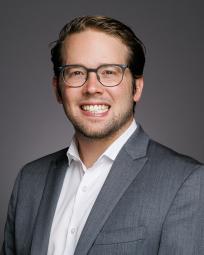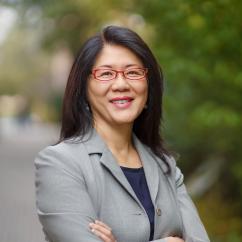

Faculty & Staff
It is important to us that you, as online learners, have access to world-renowned professors and practitioners.
On This Page
By ensuring the faculty and staff are front and center in your education through lectures as well as weekly online sessions, we hope that online learners are able to take full advantage of these opportunities with your regular attendance and insightful questions.
The design and development of this certificate is the result of a collaborative effort between faculty and staff from the Yale School of the Environment, the Hixon Center for Urban Sustainability, and collaborators across the university and beyond, including the Yale Poorvu Center for Teaching and Learning and the Yale Broadcast Studio.
Developed by Yale School of the Environment and the Hixon Center for Urban Sustainability, this certificate program prominently features faculty at the school through lectures covering their areas of expertise. Additionally, several prominent faculty from other universities around the world and renowned practitioners contribute significantly to the lectures that make up this online program. Our approach is to promote a blend of diverse perspectives from academia and practitioners for online learners to gain a broad base of knowledge from which to draw upon in their future work.
Lead Faculty

Karen C. Seto
Yale School of the Environment
Frederick C. Hixon Professor of Geography and Urbanization Science; Faculty Director of the Hixon Center for Urban Sustainability
Karen Seto is one of the world’s leading experts on how urbanization will affect the planet. A geographer and urbanization scientist, she developed the first global forecast of urban land expansion and has pioneered methods to reconstruct historical urban land-use with satellite imagery. She has more than twenty-five years of research experience in Asia where she has conducted fieldwork in over thirty urban areas. Her research has made discoveries on how urbanization will affect climate change, food systems, and biodiversity. Professor Seto serves on many national and international scientific bodies. She was a Coordinating Lead Author for two UN Climate Change Reports, the IPCC 6th (2022) and 5th (2014) Assessment Reports. In both reports she co-led the chapter on how cities can mitigate climate change.
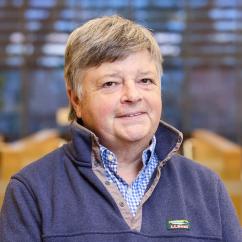
Mark S. Ashton
Yale School of the Environment
Senior Associate Dean of The Forest School; Morris K. Jesup Professor of Silviculture and Forest Ecology; Director of Yale Forests
Mark Ashton has conducted over thirty-five years of research on the biological and physical processes governing the dynamics of natural forests and on the creation of their agroforestry analogs. His long-term research concentrates on tropical and temperate forests of the Asian and American realms. His field sites within these regions were selected specifically to allow comparison of growth, adaptation, and plasticity within and among close assemblages of species that have evolved within forest climates with differing degrees of seasonality. The results of his research have been applied to the development and testing of silvicultural techniques for restoration of degraded lands. He is the author of over 160 peer reviewed journal papers; an author of two field guides to tropical forest trees; an author of the primary silviculture textbook used throughout North America; and an editor or author to twelve other monographs and books concerning the management of forests for a variety of social values concerning agroforestry, watershed management and climate mitigation. Ashton has been recognized by fourteen university awards for his teaching and advising, the David M. Smith Award for Silvicultural Research by the Society of American Foresters, and the UNESCO Sultan Quaboos Award for tropical forest conservation.
Featured Faculty
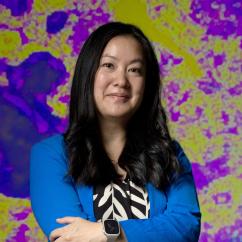
Angel Hsu
University of North Carolina Chapel Hill
Associate Professor of Public Policy and Environment, Ecology and Energy
Angel Hsu is the founder and director of the Data-Driven EnviroLab, an interdisciplinary research group that applies quantitative approaches to pressing environmental issues. She focuses on the convergence of urbanization and climate change, specifically delving into how cities play dual roles as contributors to and potential solutions to climate change. She was a contributing author to the IPCC 6th Assessment Report and lead author of the 2018 UNEP Emissions Gap Report chapter on non-state and subnational actors. She regularly advises governments, has chaired and contributed to the World Economic Forum’s Global Future Councils, and was a 2018 TED Age of Amazement and 2020 TED Climate Countdown invited speaker. She has a Ph.D. in Environmental Policy from Yale University and was formerly an Assistant Professor of Environmental Studies at Yale-NUS College in Singapore.
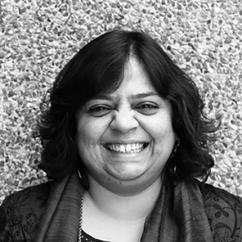
Neha Sami
Indian Institute for Human Settlements
Associate Dean, School of Environment and Sustainability; Senior Faculty Lead, Academics & Research
Neha Sami has a Ph.D. in Urban Planning from the University of Michigan, a Masters in Environmental Management from the Yale School of the Environment and a B.A. in Economics from the University of Mumbai. Her research focuses on the governance of infrastructure, especially mega-infrastructure in the context of post-liberalization urban India. She also works on questions of environmental governance focusing on institutional analysis and state capacity as well as on questions of urban pedagogy.
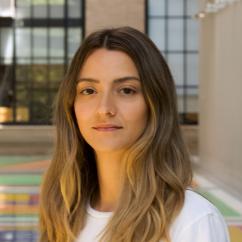
Arianna Salazar-Miranda
Yale School of the Environment
Assistant Professor of Urban Planning and Data Science
Arianna Salazar-Miranda’s research examines the relationship between urban planning, the built environment, human behavior, and sustainability using computational methods and new sources of data. Other research interests include developing digital tools in collaboration with cities and communities to support their sustainability efforts.
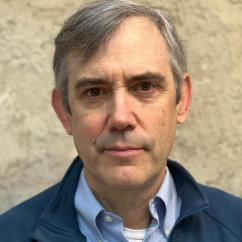
William Solecki
Hunter College, City University of New York
Professor in the Department of Geography
William Solecki’s research focuses on urban environmental change, resilience, and environmental transitions generally, and urban climate vulnerability and adaptation specifically. He has served as leader or co-leader of numerous climate international, national, and local climate impacts studies and assessments including on several local, national, and international science committees and panels and co-Chair of the New York City on Panel on Climate Change (NPCC). He has most recently served as a lead author on the IPCC, AR6, WG2, Chapter 17 on “Decision-making options for managing risk.” He is a co-founder of the Urban Climate Change Research Network (UCCRN) that now includes approximately 1,500 members and co-editor of the recent Climate Change and Cities Assessment (ARC3) Report published by Cambridge University Press. He also serves as the co-editor of the journals Current Opinion in Environmental Sustainability and Journal of Extreme Events. His Ph.D. is in Geography (1990) from Rutgers University.
Staff
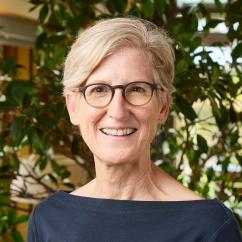
Colleen Murphy-Dunning
Yale School of the Environment
Program Director, Hixon Center for Urban Sustainability, Urban Resources Initiative (URI); Lecturer in Urban and Community Forestry
Colleen Murphy Dunning partners with faculty to lead a field based module on urban ecology for all incoming YSE graduate students. Prior to coming to New Haven in 1995, she taught agroforestry at the Kenya Forestry College and reviewed natural resource operations in Papua New Guinea for the Rainforest Action Network. Colleen received her B.S. in Public and Environmental Affairs from Indiana University, and M.S. in Forestry from Humboldt State University.
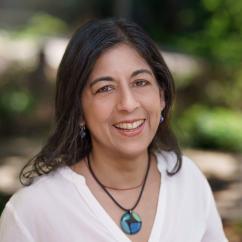
Asha Ghosh
Yale School of the Environment
Urban Program Manager
Asha Ghosh develops programs and opportunities to expand and support the curriculum related to cities and urbanization. Asha is also cultivating the Yale Urban Initiative by advancing partnerships and collaboration among Yale faculty, students, and staff to promote research and project opportunities with a multi-disciplinary focus on urban areas. In 2023-24, Asha is teaching Global Social Entrepreneurship in India at the Yale School of Management.Asha’s research interests include poverty alleviation, urban politics and policy, and community engagement in Asia. Prior to joining Yale, Asha worked in international development with a focus on decentralization and local governance in Asia.
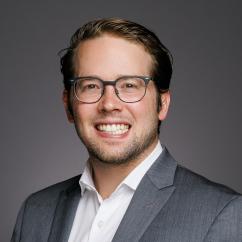
Cameron Kritikos
Yale School of the Environment
Program Manager, Urban Climate Leadership Certificate
Cameron Kritikos is a recent graduate of Yale University having completed his Masters of Environmental Management and Masters of Divinity. Prior to Yale University, he supported faith communities in the U.S. and Canada by bridging the gap to sustainable technologies, elected officials, and educational opportunities to address climate change. He completed his B.A. in International Development Studies from Calvin University in 2017.
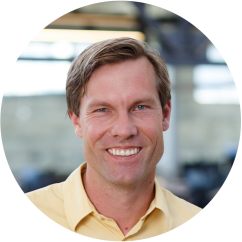
In the next few decades, cities face the unique challenge of mitigating future climate change and adapting to its present consequences while simultaneously enabling flourishing lives for all their occupants. To rise to these challenges and make good on these opportunities, we urgently need to scale the education of urban climate leaders. I look forward to graduates from the Urban Climate Leadership program joining the movement and leading the way to address climate impacts in urban areas.”

